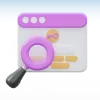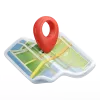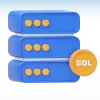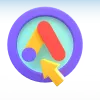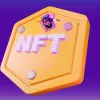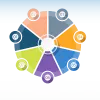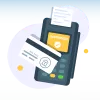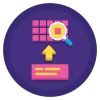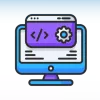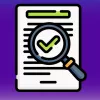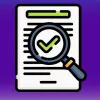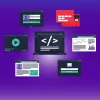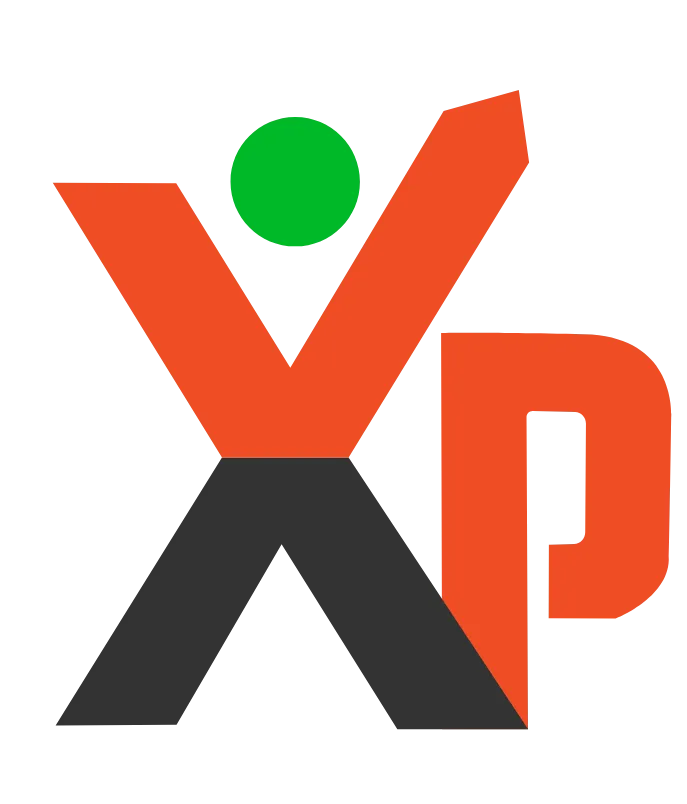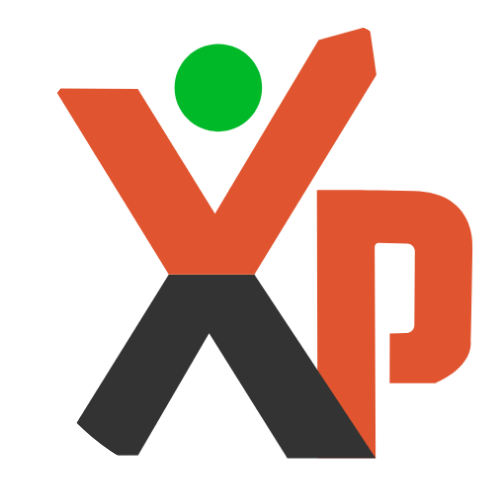20 min read Be Your Own Boss: A Primer on How to Get Started Freelancing

Are you dreaming of ditching the 9-to-5 grind to embark on a journey of self-employment? You're not alone. The allure of being able to work from anywhere and dictate your own schedule is strong, and the freelance economy is booming as a result. Between 2014 and 2018, the number of freelancers in the U.S. saw an incredible surge of more than 1400%, and this trend shows no signs of slowing down. If you're itching to claim your slice of the freelance pie but are unsure about how to get started freelancing, this guide is here to light your path. From understanding the freelance landscape to landing your first client, we'll cover the essential steps every beginner freelancer needs to take.
Understanding the Freelance Landscape
Grasping the ever-evolving nature of the freelance economy is critical for any aspiring freelancer. With technology and the internet shaping the future of work, the landscape of freelancing has undergone a significant transformation. The rise of gig platforms and the shift towards remote employment have not only made freelancing more accessible but have also broadened its appeal across various demographics. Industries such as tech, creative arts, and digital marketing are at the forefront, offering a plethora of opportunities for those with the right skill sets. This dynamic environment is characterized by its flexibility and diversity, allowing freelancers to work on a project basis for clients around the globe.
However, the freelance economy is also marked by its competitiveness. To navigate this terrain successfully, understanding market demands and aligning your skills accordingly is paramount. This includes staying abreast of emerging trends and technologies that can influence your field of work. For instance, a web developer might need to learn new programming languages or frameworks that are in high demand, while a graphic designer should be aware of the latest design trends and software tools.
Moreover, the freelance landscape is not just about individual projects but also about building a sustainable career. This involves not only honing one's craft but also developing key business skills such as networking, marketing, and financial management. Recognizing and adapting to these multifaceted aspects of freelancing will equip you to thrive in this dynamic and rewarding economy.
Identifying Your Marketable Skills
Determining the skills that set you apart in the freelance market is a pivotal step towards carving out a niche for yourself. Reflect on your strengths and areas of expertise - these could range from technical abilities in coding or graphic design to softer skills like effective communication or project management. It's essential to not only consider what you excel at but also to evaluate how these skills can solve problems for potential clients. This means looking beyond your abilities to understand what services are in demand.
Explore various channels to gauge market needs, such as job postings on freelance websites, inquiries within professional networks, or trends in your industry. This research can uncover valuable insights into what clients are seeking and help you tailor your offerings accordingly. Remember, the objective is to bridge the gap between your skillset and the market's needs, creating a unique value proposition that distinguishes you in the competitive freelance landscape.
Additionally, think about how your skills could complement each other to offer comprehensive solutions. For instance, if you're adept at both web development and SEO optimization, you could package these services to appeal to businesses looking to enhance their online presence. This strategic positioning not only amplifies your marketability but also increases the potential for higher earnings by providing more value to your clients.
By identifying and refining your marketable skills, you lay the groundwork for a thriving freelance career, one that aligns your talents with the demands of the freelance economy, ensuring you are not just another freelancer but a sought-after professional in your field.
Setting Up Your Freelance Business
Embarking on a freelance career involves more than just possessing marketable skills; it requires establishing a solid foundation for your business operations. Selecting the right business structure is your first step. Options like a sole proprietorship or an LLC (Limited Liability Company) offer distinct advantages and legal protections, so consider your needs carefully before making a decision. Once chosen, proceed with the official registration of your business, adhering to any specific regulations that apply in your state or country.
Acquiring the necessary licenses and permits is next on the agenda. Depending on your field of work and location, different requirements may apply. Failure to comply with these legalities can lead to complications down the road, so it's critical to research and fulfill these obligations from the outset.
Opening a separate bank account for your business finances is not only a good practice for organization, but it's also often a requirement for legal business structures like LLCs. This separation helps in managing your taxes more effectively and presents a professional image to clients when invoicing and receiving payments.
Investing in the right tools and software will streamline your freelance operation, enabling efficient project management, financial tracking, and client communication. From scheduling tools and invoicing software to project management applications, these resources are invaluable in maintaining organization and enhancing productivity.
As you lay these foundational elements, you're not merely setting up administrative structures; you're building the backbone of a sustainable freelance business that's equipped to grow and evolve in the competitive freelance marketplace.
Building an Online Presence
Cultivating a dynamic online presence is indispensable for freelancers in today’s digital-centric marketplace. Your initial step should be the creation of a polished, professional website. This digital portfolio should not only highlight your skills and past projects but also detail the services you offer, making it easy for potential clients to understand how you can help them. Include a section for testimonials where past clients can vouch for the quality of your work, adding credibility to your services.
Social media platforms and professional networking sites like LinkedIn are equally crucial. These channels offer the opportunity to engage directly with potential clients, industry peers, and even mentors. By consistently updating your profiles and sharing relevant content, you can demonstrate your expertise and stay top-of-mind for those in your network.
An effective online presence goes beyond just showcasing your work; it's about creating a brand for yourself. This means employing a consistent tone and style across all your digital platforms to make your freelance business instantly recognizable. Engage with your audience through regular posts, insightful comments on relevant discussions, and by sharing useful content that resonates with your target market.
Participating in online forums and industry groups can further extend your digital footprint. These communities allow you to share your knowledge, learn from others, and potentially connect with clients looking for your specific skills. Remember, every interaction online is an opportunity to expand your network and draw attention to your freelance business.
Finding Your First Clients
Navigating the initial phase of securing your inaugural clients may seem daunting, but it's an essential milestone in your freelance career. A strategic place to start is with your existing networks, encompassing both personal and professional contacts. Inform them about your venture into freelancing; you never know who might require your services or who can introduce you to potential clients.
Expanding your search to include freelance marketplaces and job boards can significantly increase your visibility to those looking for the skills you offer. Platforms such as Upwork, Freelancer, and LinkedIn provide a plethora of opportunities to connect with clients. When applying for projects on these sites, customize your proposals. Demonstrating a clear understanding of the client's needs and articulating how you can address those needs will set you apart from the competition.
Remember, your proposal is your first impression, so make it count. Highlight your unique value proposition and share relevant examples of your work that demonstrate your expertise. Engaging directly with potential clients through well-crafted proposals can pave the way for fruitful professional relationships.
Additionally, attending networking events and industry conferences, either virtually or in person, can provide opportunities to meet potential clients. Networking is a powerful tool in the freelance world; it's about making genuine connections that could lead to client referrals or direct job offers. Keep your communication clear, professional, and focused on how you can solve problems for your potential clients, and you'll begin to see your client base grow.
Delivering Quality Work and Building Relationships
Maintaining an exceptional standard of work and fostering enduring client relationships are cornerstones of a thriving freelance business. Every project you undertake should be executed with meticulous attention to detail and a commitment to meeting, if not surpassing, client expectations. This approach not only cements your reputation as a reliable and skilled professional but also opens the door to future opportunities through word-of-mouth referrals and repeat engagements.
Effective communication plays a pivotal role in this process. Keeping your clients informed about project progress and being responsive to their needs and feedback helps in building trust and rapport. This includes being proactive in addressing any concerns they may have and offering solutions that align with their objectives.
Another key aspect is being adaptable and open to revisions, within reason. Demonstrating a willingness to tweak your work based on client feedback underscores your dedication to delivering a final product that truly meets their needs.
Remember, the relationships you build with your clients are not transactional but are partnerships aimed at achieving mutual success. Showing appreciation for their business, such as sending a thank-you note after project completion or offering a discount for future services, can further strengthen these bonds.
By prioritizing quality in your work and nurturing positive client relationships, you lay the foundation for a sustainable and prosperous freelance career. Each satisfied client not only becomes a potential repeat customer but also a valuable advocate for your services in the wider market.
Managing Your Freelance Finances
Navigating the financial landscape of freelancing is crucial for long-term sustainability and success. One of the first steps is to establish an efficient system to monitor both your earnings and expenditures. This ensures you have a clear understanding of your financial health, enabling informed decisions about your business. Setting aside a portion of your income for taxes is essential, as freelancers are responsible for their own tax payments. Additionally, allocating funds for retirement and unforeseen expenses will provide a safety net for the future.
The use of accounting software can significantly streamline this process, offering tools for budget tracking, invoice management, and financial forecasting. For those who may find the intricacies of freelance finance daunting, consulting with a professional accountant can offer peace of mind and ensure compliance with tax regulations.
Developing a transparent pricing model is another vital component. This involves researching industry standards to set competitive rates while ensuring fair compensation for your work. Clear communication about your pricing and services from the outset can prevent misunderstandings and build trust with clients.
Lastly, mastering the art of negotiation is beneficial for securing contracts that reflect the true value of your services. It's important to approach negotiations with confidence and a willingness to find mutually beneficial solutions. This skill not only aids in achieving appropriate compensation but also in fostering positive client relationships. Effective financial management is an ongoing process, requiring consistent attention and adjustment as your freelance business evolves.
Continuously Improving and Expanding Your Skills
In the rapidly changing freelance landscape, one's ability to adapt and grow skill-wise is indispensable. Continuous improvement and skill expansion are not just about staying competitive; they are about seizing new opportunities and delivering exceptional value to your clients. Dedicating time to professional development through online courses, webinars, and industry-specific workshops can significantly elevate your marketability. It's essential to keep a keen eye on emerging trends within your field and to integrate relevant, new abilities into your service offerings.
For example, a digital marketer might delve into the latest SEO algorithms or social media strategies, while a graphic designer could explore cutting-edge design software or visual trends. This proactive approach to learning ensures that your services remain in high demand and that you can cater to a broader range of client needs.
Additionally, seeking certifications can not only bolster your credibility but also demonstrate your commitment to excellence in your field. Remember, the investment you make in your skills is a direct investment in your freelance business’s growth and sustainability. Networking with other professionals and participating in online forums can also provide insights into valuable skills and tools that are gaining traction.
Adopting a mindset of continuous learning and skill enhancement not only prepares you for the challenges of freelancing but also opens doors to exciting projects and collaborations that can enrich your career journey.





